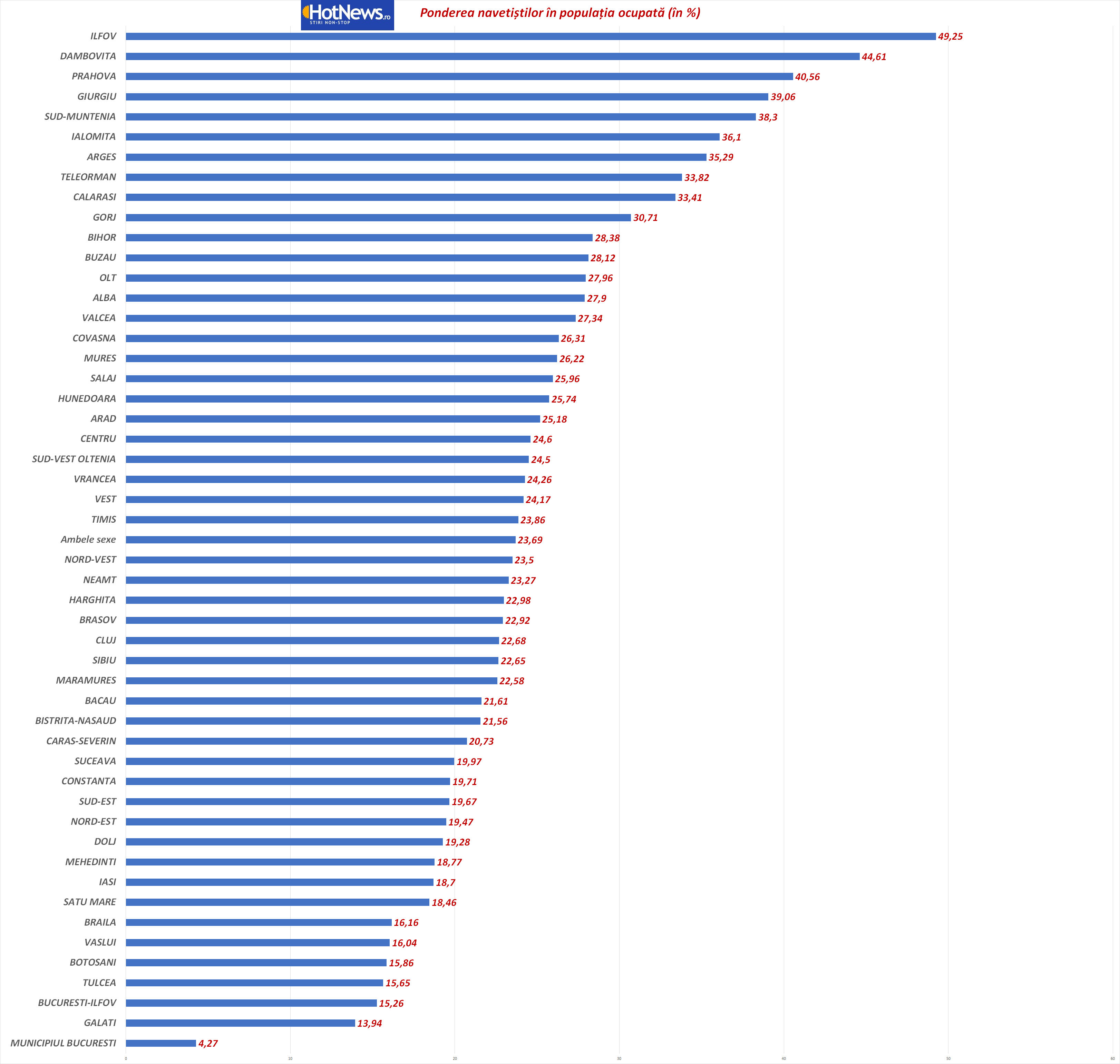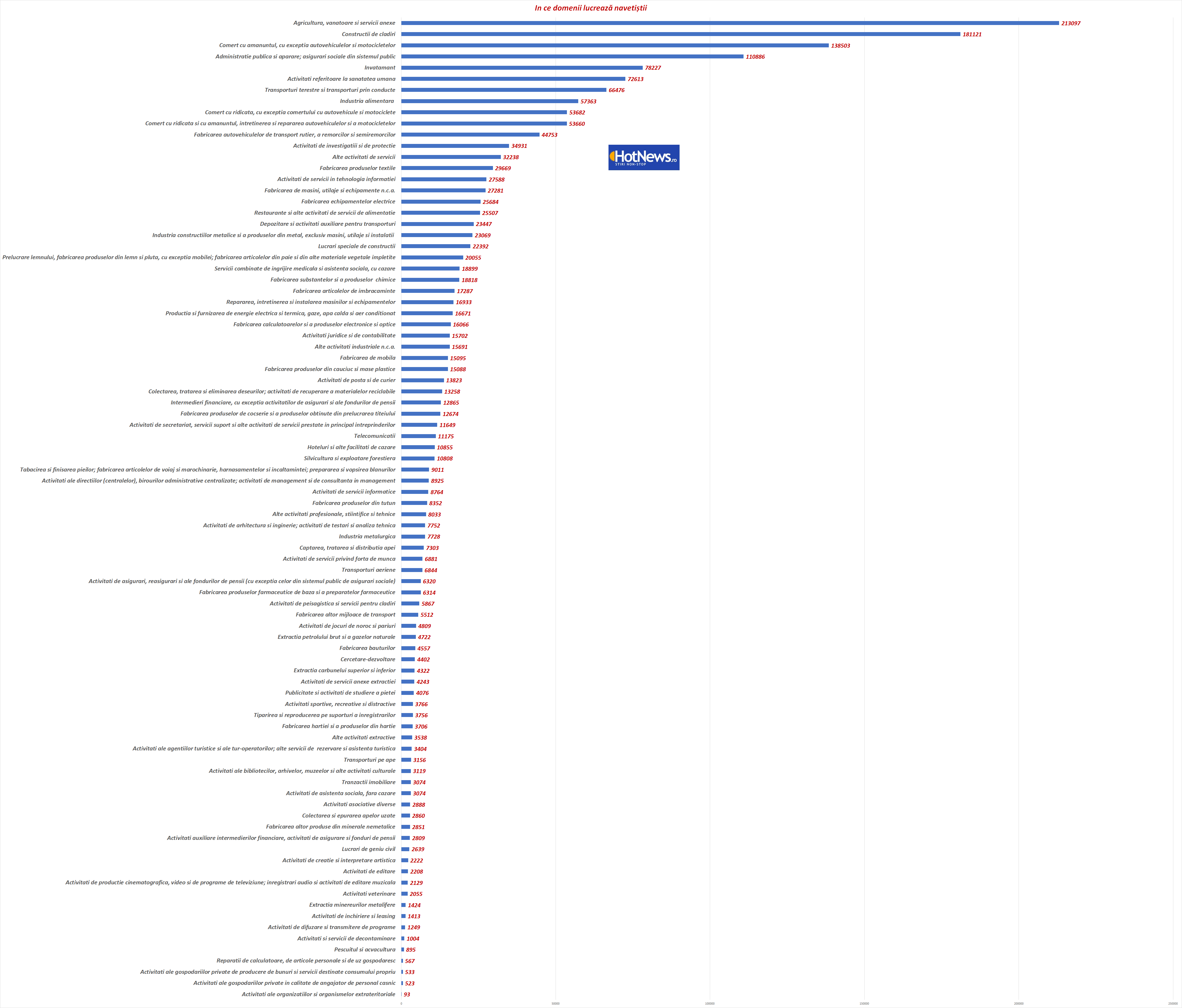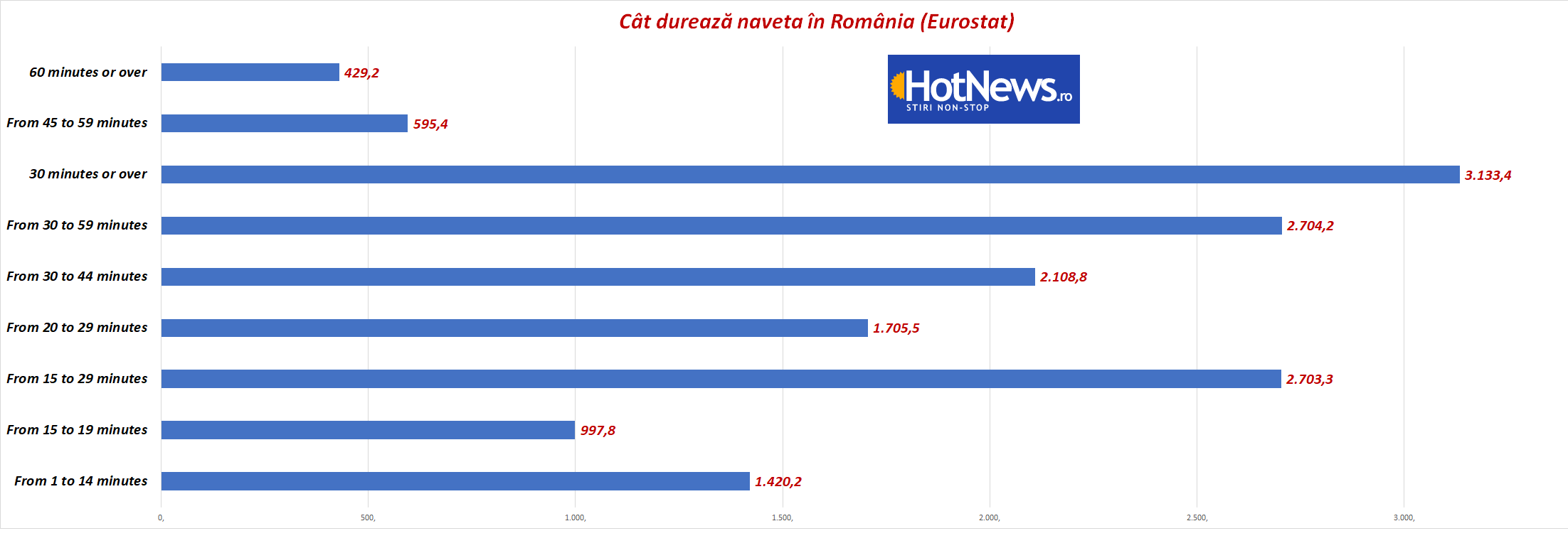
The number of those who agreed to compromise between staying in their place of residence, but not having a job, or commuting daily to another city or even to another county, according to the US National Institute of Statistics, increased by more than 300,000, which published in Friday unemployment rate in Romania: 5.8% for men, 4.9% for women and 22.3% among youth.
According to the INS, nearly two million Romanians commute to work, about a third of them in a county other than the one in which they live, and two-thirds in another settlement in the county where they live.
In Ilfov, passengers make up almost 50% of all workers who most likely come to work in the capital. According to Statistivii, the county of Dambovitsa, where travelers make up more than 44% of the employed population. Giurgiu and Jalomitsa are the next “pools” of passengers.

“Mobile” workers are those for whom the trade-off between travel costs and unemployment is unfortunate. Many of them were able to negotiate benefits and cover travel expenses.
Perhaps, in order to encourage an active job search, the state should “tie” social benefits to employment, even in another country. It is true, for those who have a family, this can be a difficult concession.
In what areas do passengers work?
Agriculture, construction and retail trade are the main occupations of those who choose to commute. You can find the full list below, data source is the National Institute of Statistics.

Travel expenses can add up to 22 days per year spent on the road
A person who takes an hour to get to work and an hour to get back, therefore spends two hours a day in a car or in transport. This means 10 hours per week or 520 hours per year. Or almost 22 days a year which he spends on the road.
Commuting time of Romanian workers (data in the graph is in thousands of people), according to Eurostat:

A recent study examines the time spent by workers commuting to/from work in fifteen European countries over the past three decades, analyzing recent trends in commuting. Using data from several waves of the European Working Conditions Survey, the results show significant gender differences between commuters in Austria, Belgium, France, Germany, Italy, Ireland, Luxembourg, the Netherlands and the UK. One observation is that men commute to work more often than women.
One hour of commuting to and from work means 22 days a year spent behind the wheel
Another observation is that travel times increased in Denmark, Finland, Sweden, Ireland, Italy, Spain, Belgium, France and the Netherlands. On the contrary, we see trends towards shorter journey times in Austria, Germany, Greece and Portugal.
The mobility of the European population is primarily based on the use of private vehicles (50% use private vehicles every day, while only 16% use public transport and 12% use bicycles), so that daily trips generate about 25% of CO2 emissions in Europe, also the document shows.
Time spent commuting to and from work is correlated with certain negative outcomes. Hansson et al. (2011) and Kunn-Nelen (2016) found a negative correlation between commuting and health in Sweden and the UK, respectively.
Several authors have found that commuting is associated with increased stress but also increased labor costs and lost productivity
The impact of commuting on wages has also received some attention in the literature, and higher wages tend to be associated with longer commutes.
If we spend two hours on the way there and another two hours on the way back, then they say that we spend more than a month a year in the car/train/tram/bus.
How are things in Europe?
1 in 5 European workers spend 90 minutes or more commuting to and from work. On average, European workers spend 1 hour 24 minutes a day on the road, covering a total of about 30 km. According to a survey conducted in six European countries by SD Worx, a payroll and HR company, this not only cuts into working hours, but also takes time away from family time.
More than half of European respondents (56.8%) say that on average it takes them less than an hour to get to and from work every day. A third of them (29.8%) take less than half an hour a day, and 27% take 30 minutes to an hour.
Among the countries surveyed, the British spend the most time traveling: 28.8% say it takes them 90 minutes or more to travel. Next on the list are Belgian workers, 24% of whom spend more than an hour and a half, while Germans (17.9%) spend the least amount of time commuting.
Regarding the distance traveled, a fifth of Europeans (23.3%) travel on average more than 40 km or more every day, while 36.2% travel less than 10 km. Travel time tells us more than distance, because even if you live only 15 km from work, travel time can vary greatly depending on location, availability of public transport and mode of transport.
Source: Hot News
Ashley Bailey is a talented author and journalist known for her writing on trending topics. Currently working at 247 news reel, she brings readers fresh perspectives on current issues. With her well-researched and thought-provoking articles, she captures the zeitgeist and stays ahead of the latest trends. Ashley’s writing is a must-read for anyone interested in staying up-to-date with the latest developments.